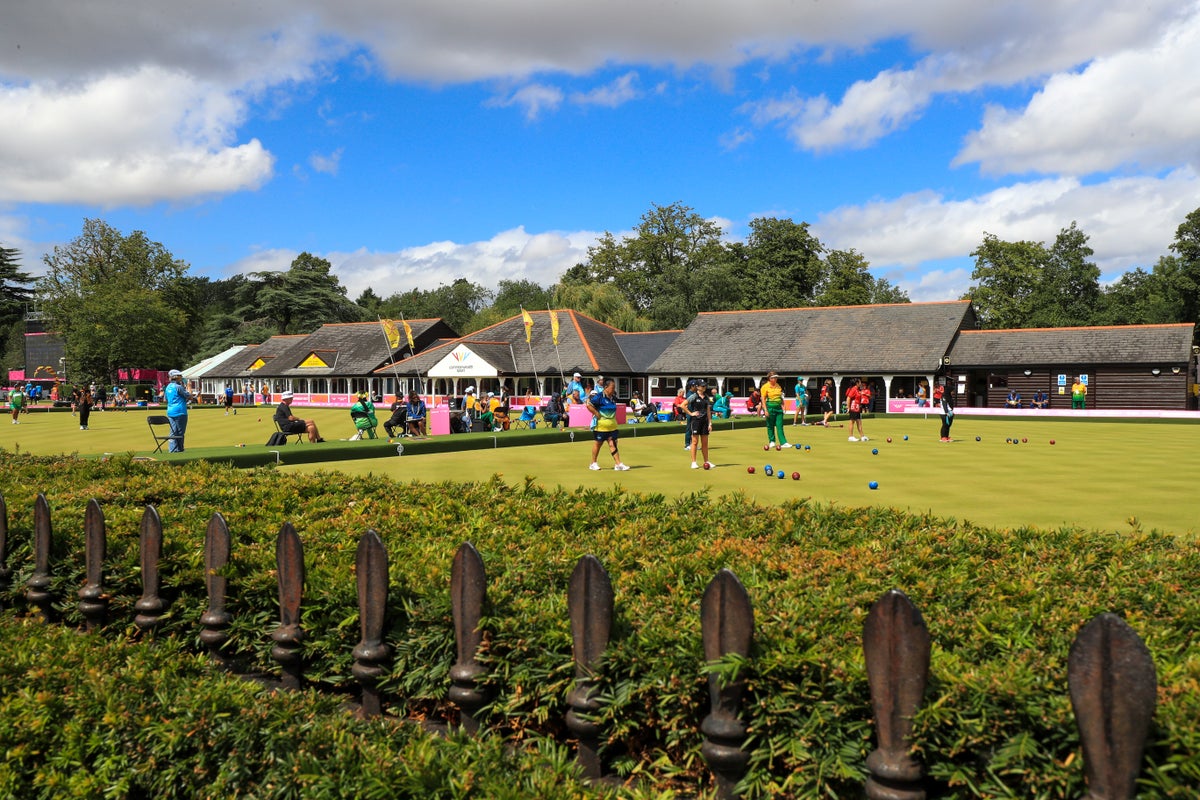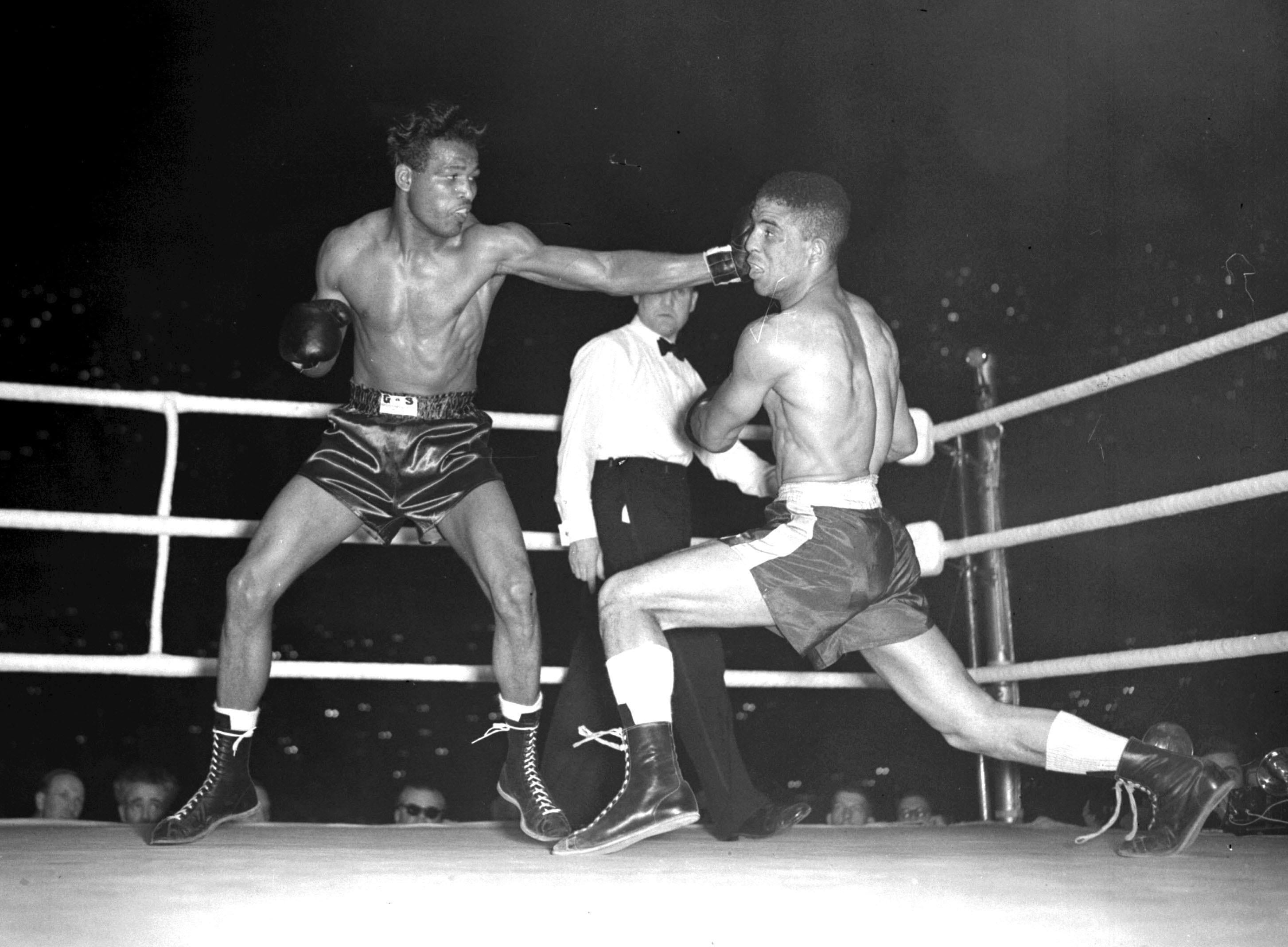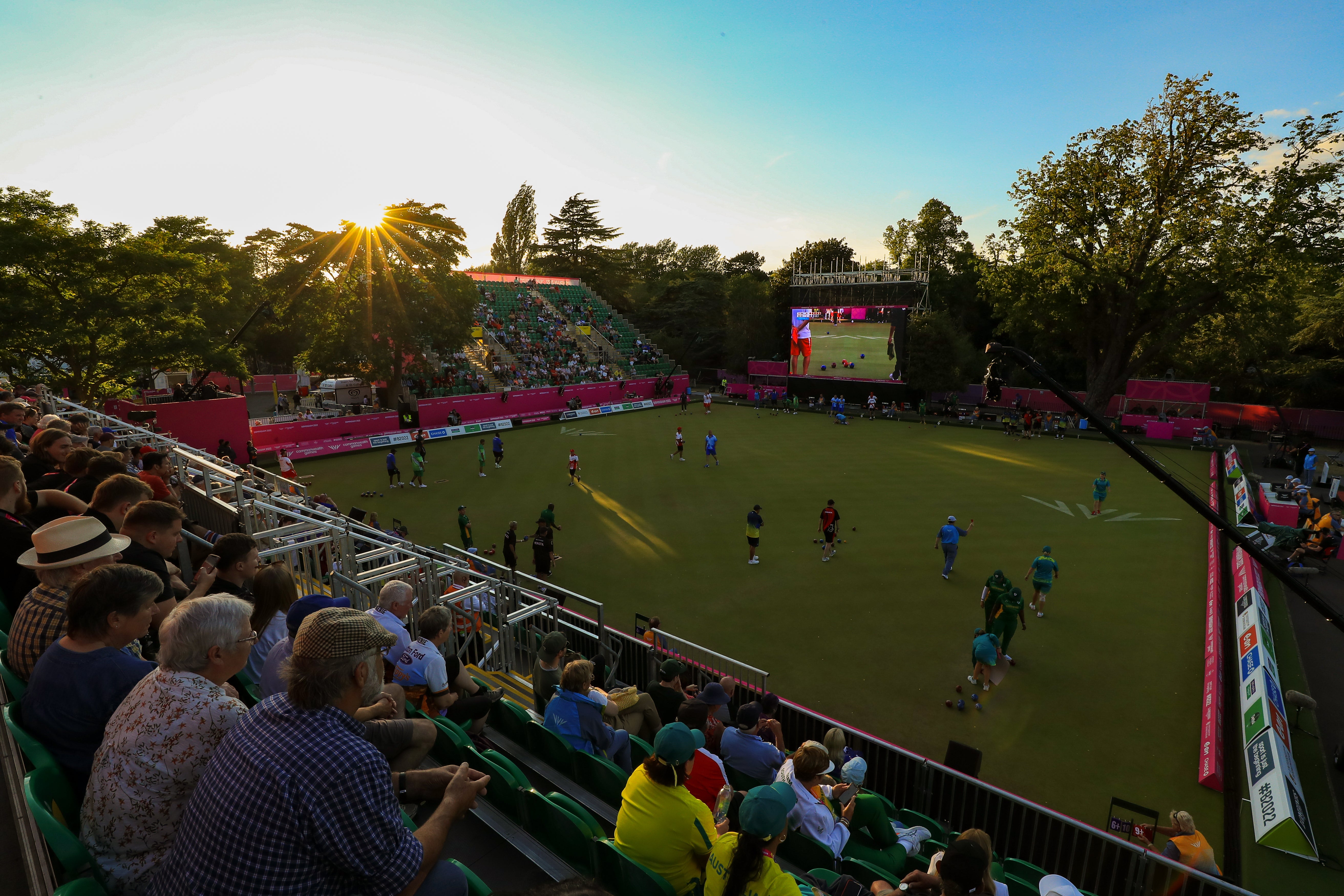
Less than two miles from the lush lawns of Royal Leamington Spa Bowling Club, a modest headstone marks the grave of the town’s most famous sporting son.
Randolph Turpin shocked the sporting world when he dethroned the great Sugar Ray Robinson to win the world middleweight title at Earls Court in July 1951.
Turpin’s reign lasted just 64 days before Robinson duly won his title back back in New York, hastening a sad demise that led to the so-called ‘Leamington Licker’ serving fried breakfasts to lorry drivers in a transport cafe which he owned and where, beset by bankruptcy, he would ultimately shoot himself in May 1966 at the age of 37.
After years in which Turpin was largely forgotten, his tragic story has been resurrected relatively recently, culminating in a blue plaque at his childhood home of Willes Road and a publicly-funded bronze statue of the fighter being erected in the Market Square of nearby Warwick.

Turpin’s rumbustious reputation strikes a sharp juxtaposition with Leamington’s genteel reputation and ruddy economic health – one of only three towns in the country afforded the ‘Royal’ prefix, it was voted the UK’s happiest place to live by the property company Rightmove in 2020.
Away from the cut and thrust of professional boxing, its more quaint relationship with lawn bowls began in 1913 with the opening of the town’s first bowling green. The club hosted the Women’s World Bowls Championships in 1996, as well as many other major national and international competitions.
Yet its white picket fences and finely manicured beech hedges can scarcely have been prepared for a more eccentric and disparate cast of characters than those who have made the club’s greens their own for the duration of these Commonwealth Games.
They all came, from world leaders to descendants of mutineers: Iton Tagelagi, the premier of the tiny Pacific atoll of Niue; the Falkland Island team who trained in a school corridor due to the lack of outside facilities; John Christian, a direct sixth-generation relative of the Bounty’s Fletcher Christian, who was representing Norfolk Island.
The penultimate day of competition on Friday saw the teams trimmed down and another Norfolk Islander, Carmen Anderson, a 67-year-old grandmother who says her nickname is the ‘Tiger Shark’ due to her ferocious approach to the sport, exit the pairs competition at the quarter-final stage.
The stage was left to the women’s triples team from the Cook Islands, whose team comprising sisters Emily and Tiare Jim, and their mother Teokotai, saw their hopes of adding to the solitary medal won by the islands in previous Games – also in lawn bowls – ended by successive defeats to England and New Zealand in medal matches.

Far from being downbeat, the team and their colourful supporters swiftly decamped to the venue’s outdoor food court and, in front of a growing crowd of spectators and a mobile fish and chip van, staged a six-minute performance of a love song called ‘kua iti te marama’ – translated as ‘The moon has risen and I’m still waiting’.
The sisters vowed they will continue to sing the song until an elusive gold medal comes the island’s way. “But for now we will do less singing, and a bit more practice,” said Emily Jim.
They have already lent sweet harmony to a town whose other claim to fame is the man who once outshone the great Sugar Ray.







